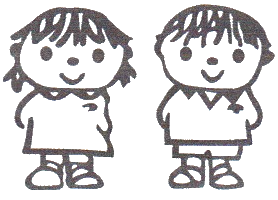BITING POLICY AND ADDITIONAL INFORMATION ON BITING
Evidence suggests that up to a quarter of all children will bite others at some stage. Nelmes Pre-School understands that this is a difficult situation for parents whether it is your child that has been bitten or your child biting others.
This information will give you more information about why biting may occur, how biting incidents are managed and what steps we take to protect your child’s health and safety while in the setting.
WHY DO SOME CHILDREN BITE
• Teething
Swelling gums can be painful and cause discomfort; this can be relieved by biting or chewing on something.
• Exploration
Babies and young children explore the world around them using their senses. Young children do not always know the difference between gnawing on a toy and biting someone.
• Attention
When children are in situations where they feel they are not receiving enough attention biting is a quick way of becoming the centre of attention.
• Frustration
Children can be frustrated by a number of things, such as, wanting to be independent and do things for themselves and not having the vocabulary to express themselves clearly. This can lead to biting as a way of dealing with this frustration.
WHAT DOES NELMES DO ABOUT BITING
Nelmes staff will work with yourself as parent/carer to discover why your child is biting. This may have been an isolated incident, but we will always monitor behavior of a biter follower an incident.
If a trigger is identified for the biting incident we will reduce or remove the cause. We may increase the supervision of a child that is biting so that we can support them to find different ways to express themselves.
We may encourage your child to take part in activities which help release frustration such as play dough or other physical activities.
WHAT CAN YOU DO ABOUT BITING
We appreciate that if your child has been bitten or has bitten someone, this can be distressing but please speak to staff about any concerns you may have in a calm manner.
Please remember that staff cannot give you any information about any other children in the setting, and will not disclose who has bitten your child or who your child has bitten.
The key to putting a stop to any challenging behavior is a partnership approach. Work with the Pre-School team and support any behavior management techniques and use them at home as well as at school.
WHAT HAPPENS IF MY CHILD IS BITTEN
• Your child will be comforted and reassured.
• The bite wound will then be washed with warm soapy water and cleaned.
• If the wound is bleeding, it will be allowed to bleed and covered to reduce the risk of further infection.
• If the bite has broken the skin, you will then be contacted by telephone so that you are aware that your child has been bitten.
• If the bite has broken the child’s skin, under the Health Protection Agency guidelines you will need to seek medical attention. This could be through your GP or an Accident and Emergency department.
• When you collect your child there will be an incident form completed with all the information about the biting incident and any treatment given.

